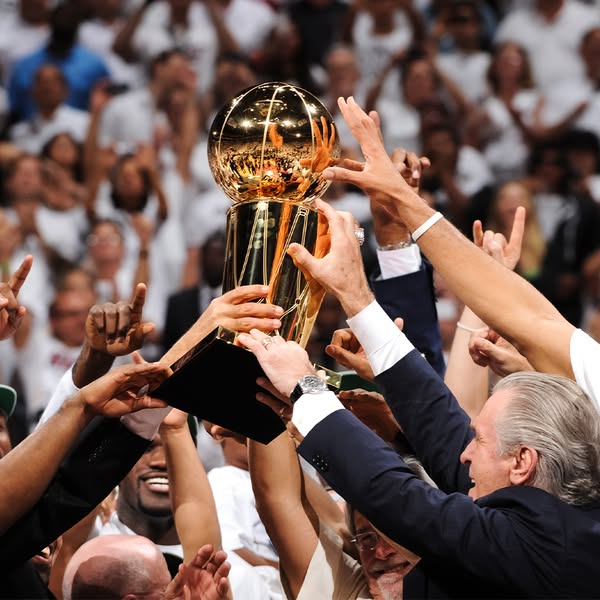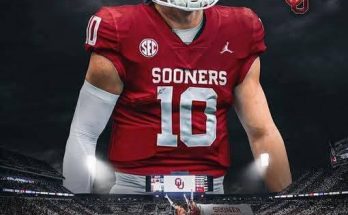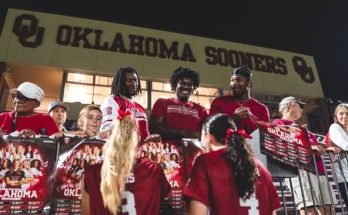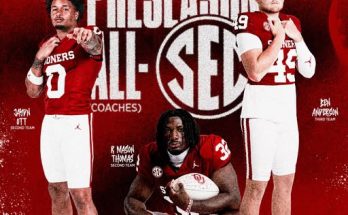On June 12, 2012, the city of Miami roared with uncontainable joy. Erik Spoelstra, the relatively unassuming head coach once derided as a clipboard holder for superstars, stood tall on basketball’s grandest stage. That night, his Miami Heat delivered a dominant Game 1 performance against the Oklahoma City Thunder in the NBA Finals, igniting a run that would eventually culminate in the franchise’s second championship. Spoelstra wasn’t just along for the ride—he was masterfully steering a team with colossal expectations, holding together a volatile mix of talent, ego, and legacy. Now, over a decade later, fans and pundits alike are asking a powerful question: Can Erik Spoelstra rekindle the magic of June 12, 2012 and deliver another championship to Miami?
A lot has changed since that historic summer evening. The “Big Three” era that defined Miami’s early 2010s dominance—LeBron James, Dwyane Wade, and Chris Bosh—has long since passed into the annals of basketball history. Wade retired as a Heat legend. Bosh was forced into early retirement due to health concerns. James took his talents west to Los Angeles. But one man remains: Erik Spoelstra, the enduring architect behind the Heat’s modern identity. What was once considered a question of how long he would last in a pressure-cooker role has transformed into admiration for his longevity and brilliance. He’s no longer coaching superstars to prove his worth—he is the standard other coaches strive to match.
Spoelstra’s career arc is perhaps one of the most unique in NBA history. Rising from a video coordinator position in the late ’90s, he embodies the “grind-it-out” mentality he now instills in his players. There’s no flash, no exaggerated theatrics—just relentless preparation, uncanny adjustments, and a steely-eyed focus on culture. Pat Riley’s famed “Heat Culture” doesn’t exist without Spoelstra at the helm. He isn’t just an extension of Riley’s basketball vision—he’s become its living, breathing manifestation.
But the championship drought since 2013 hasn’t gone unnoticed. Despite consistent playoff appearances and two Finals trips in 2020 and 2023, Miami has fallen just short. In both runs, the Heat overachieved. They toppled top-seeded teams, leaned on toughness, and rode the coattails of Jimmy Butler’s heroics. Still, no ring materialized. That elusive fourth banner remains a dangling dream, whispering of unfinished business. For all of Spoelstra’s tactical genius, the NBA remains a superstar’s league—and Miami has danced on the fringes of elite contention without landing that one transcendent piece.
In today’s NBA landscape, the challenge is steeper than ever. The Western Conference is a minefield of MVP-caliber talents, and the East has seen the emergence of juggernauts like Boston and Milwaukee. Younger stars are taking over, and the era of parity is in full swing. Yet Spoelstra, even when counted out, consistently has Miami punching above its weight class. The Heat were a No. 8 seed in 2023, lost their first Play-In game, and still managed to claw their way to the Finals. That kind of resilience is a direct reflection of Spoelstra’s coaching. His teams don’t quit. They adapt, survive, and often thrive when logic says they shouldn’t.
Now, Spoelstra faces a crossroads. The Heat front office has done well to surround him with a versatile, if somewhat flawed, roster. Jimmy Butler remains the spiritual heartbeat of the team—gritty, unyielding, and wildly competitive. Bam Adebayo has blossomed into a defensive cornerstone and one of the league’s most versatile big men. Role players like Tyler Herro, Caleb Martin, and Duncan Robinson have proven capable of stepping into the spotlight. Yet, the missing ingredient—the true offensive engine capable of carrying the team in crunch-time playoff moments—has remained elusive.
Miami’s flirtation with landing another superstar has become a recurring offseason storyline. From Kevin Durant to Damian Lillard, the Heat have been consistently linked with big names, but have yet to reel one in. Whether due to trade assets, timing, or player preference, Spoelstra hasn’t been granted the kind of top-tier firepower that fueled the 2012 run. And still, he persists. He gets the most out of less. He builds trust. He creates roles and expectations that players buy into without hesitation.
Recreating the magic of June 12, 2012, won’t mean recreating the cast. It won’t mean finding the next LeBron or Wade. It will require something even more difficult: adapting a championship blueprint in an era that rewards offensive firepower, positional fluidity, and strategic innovation. Spoelstra isn’t the same coach he was in 2012—he’s far more seasoned, far more daring. His in-game adjustments have become legendary. His ability to shift defensive schemes mid-series, his willingness to trust unheralded players in big moments, and his total command of the locker room make him arguably the best coach in basketball today.
Yet Spoelstra would be the first to admit that coaching brilliance alone doesn’t hang banners. Health, depth, matchups, and timing—all uncontrollable elements—play enormous roles. In 2023, the Heat limped into the Finals only to run into a Denver Nuggets squad firing on all cylinders. Spoelstra coached brilliantly, but there was only so much he could do. Miami needs another injection of talent to realistically mount another title campaign.
There’s hope, though. The Heat’s culture continues to attract players who crave structure, accountability, and the chance to win. Miami isn’t a rebuilding project or a team chasing mediocrity—it’s a destination for players who want to compete for something real. That allure gives Spoelstra a fighting chance to coach another title team. The emergence of younger players from within the Heat’s system also provides optimism. Miami has developed a reputation for finding and refining talent from overlooked places—undrafted players, G League call-ups, reclamation projects. That’s the Spoelstra touch. He doesn’t just manage talent—he cultivates it.
But time waits for no one. Jimmy Butler is 35. The window with this current core is narrowing. Miami will need to be aggressive—perhaps even bold—this offseason. Whether it’s through trade, free agency, or internal development, the Heat need a jolt. A new face, a new energy, something to push them over the line they’ve hovered near but haven’t crossed in over a decade. Spoelstra will be ready. He always is. But the front office must match his readiness with action.
So, can Erik Spoelstra rekindle the magic of June 12, 2012? The answer lies not in nostalgia, but in evolution. He doesn’t need to go back—he needs to go forward, building on the foundation of everything he’s learned, taught, and endured over the last thirteen years. He’s no longer the young coach proving himself on the sideline—he’s the seasoned maestro, conducting symphonies of effort, grit, and tactical brilliance. He’s done it before. He knows what it takes. And if the stars align—if the Heat find that one missing piece—don’t be surprised if Spoelstra once again leads Miami to the NBA’s mountaintop.
Because if there’s one constant in the ever-shifting landscape of professional basketball, it’s this: never count out Erik Spoelstra. His magic might have begun on June 12, 2012, but it is far from finished.



